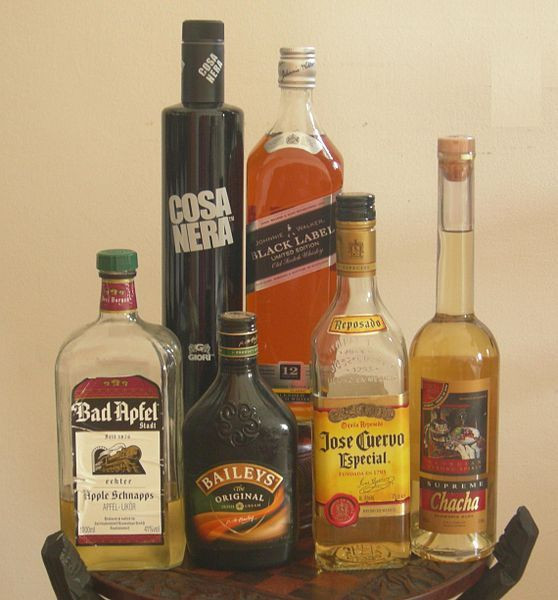Drug Could Help Alcoholics Forget They're Addicted By Blocking Their Memories

With over 25,000 deaths caused by alcohol in 2010 — an increase of 2.7 percent from 2009 — and almost six percent of American adults, aged 18 and up, who drink alcohol daily, scientists are trying to find a solution to the drinking problem. One team of researchers has found that blocking a certain chemical pathway in the brain involved with memories could help people with alcohol problems forget they're addicted.
Previous studies have shown that disrupting the mTORC1 signaling pathway in the brain stops the production of several proteins associated with learning and memory. By doing this, the process of memory retrieval can also be stopped, which can essentially help people with post-traumatic stress disorder (PTSD) or drug addiction forget they have these illnesses, according to Nature.
With this in mind, Dorit Ron, a neuroscientist at the University of California, San Francisco, wanted to see how rats that abused alcohol would react to these blocked pathways. She exposed the rats to two different water sources — one with pure water and the other with 20 percent alcohol — for seven weeks. In order to access the alcohol, they had to press a lever. Although Ron said the alcohol-laden water probably tasted horrible for the rodents, they eventually started to prefer it over the other source. The rats soon began to have blood-alcohol levels on par with the driving limits in the U.S. and the U.K. — about 80 milliliters per 100 milliliters of blood.
"It's pretty amazing," she said. "Over time, you can see they develop a strong preference for alcohol."
Ron and her team then took alcohol away from the rodents for 10 days, at the end of which they gave each rodent a small drop. They brought back memories of the alcohol with just enough for the rodents to smell and taste it. As soon as they did this, they gave the rodents the drug rapamycin, which inhibits mTORC1. Over a two week period, those that received rapamycin became less interested in drinking the alcohol.
Rapamycin specifically targets the reconsolidation of existing memories into long-term storage once they've been reactivated. When it was tested on whether the rodents would continue to drink sugar water, it had no effect.
"We don't know what the specific memory is that we're messing with, but we know the cue that's triggering it," co-author Patricia Janak, a UCSF neuroscientist, said. But Ron suggested that the memories linking the smell and taste of the alcohol to its pleasurable effects were probably the ones blocked by the rapamycin.
Ron and her team believe rapamycin could be a good start for treatments of alcohol and drug abuse, though she doesn't plan on conducting this trial on humans. Dr. Charles O'Brien, director of the Center for Studies of Addiction at the University of Pennsylvania, says he would be "eager to try this in my patients as soon as it can be determined that it's safe."
"It's really excellent," he said. "Fundamentally, addiction is a memory, and [the authors] are going straight at what is actually going on in the brain."
Rapamycin is already used as an immunosuppressant for organ-transplant recipients and has been shown to have anti-tumor properties by inhibiting tumor producing cells from growing.
Source:
Janak P, Ron D, Barak S, et al. Disruption of alcohol-related memories by mTORC1 inhibition prevents relapse. Nature Neuroscience. 2013.
Published by Medicaldaily.com



























